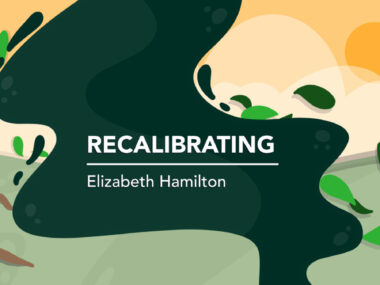The Need to Be Resilient, With or Without Trigger Warnings
Should rare disease patients be cautioned about just what they're in for?
Written by |

“Should I tell my young child that he/she was diagnosed with Friedreich’s ataxia?”
Though solemn and heartbreaking, that question is not uncommon. At least three times a year, it’s asked in FA forums and online groups, and debate follows. It reminds me of my own childhood diagnosis of Friedreich’s ataxia (FA).
Frankly, I would answer “Yes!” to that question every time. Obviously, finding out you have a debilitating disorder with no treatments or cure is devastating, especially at a young age. But I believe that being honest and forthcoming about this medical reality is far better than the alternative: forcing a child to live in temporary ignorance of a diagnosis.
Closing our eyes to painful reality doesn’t mean it isn’t real. And we can’t prepare for the future with our eyes closed.
Regardless of my opinion, however, discovering the truth of an FA diagnosis is inevitable — but deciding when and how much to tell the patient is solely the parents’ decision.
Sometimes I wonder if a trigger warning would help with an FA diagnosis. Maybe having a scripted statement would benefit both the newly diagnosed and their parents. Something like:
The life of someone with a progressive disease like FA may contain depression, anxiety, suicidal ideation, loneliness, frustration, hopelessness, and other problems. But resiliency is possible. Take care of yourself.
On trigger warnings
Trigger warnings are cautions; they warn audience members of potentially troubling material before being fully exposed, thus allowing them to process the issues before taking the next step — all for the benefit of their mental health.
These warnings typically appear before watching, listening to, or reading most forms of entertainment these days. That wasn’t always the case, which has created a generational gap; trigger warnings didn’t exist when I was growing up, for instance. But I’m not a grizzled millennial claiming Gen Z is fragile, saying things like, “Back when I was your age, we didn’t get a trigger warning before we grieved unintentionally killing our Tamagotchis or the Chippettes’ song for a penguin seeking its mother in ‘The Chipmunk Adventure.’”
“And look at us! We turned out just fine!” (Eye twitch.)
Even though they’re only common recently, trigger warnings shouldn’t be seen as totally unnecessary. As my education in mental health taught, exposure to a traumatic event that hasn’t been mentally processed yet can be harmful to a person’s overall mental well-being. For example, if I start to notice that I drink too much, I may want to put off reading stories by the gonzo journalist Hunter S. Thompson until I’m more adjusted to the struggles of addiction. A trigger warning here could help me avoid exposure to this topic for now, in case it would encourage my excessive drinking.
I found the following 2015 article from The New Republic helpful in detailing the psychological history of trigger warnings: “Generation PTSD: What the ‘Trigger Warning’ Debate Is Really About.” It posits that such warnings have evolved from the post-Vietnam era, when post-traumatic stress disorder was more fully recognized in the mental health community.
I identify with critics of trigger warnings since we agree that they’re not an absolute fix; it’s important, in my view, for both critics and die-hard fans to recognize that they’re only a temporary solution. Trigger warnings are the beginning of a mental health process, not an end result and not a list of topics to be avoided forever. They’re triage, not lifelong solutions.
For more on the therapeutic intent of trigger warnings, check out the 2019 Scientific American article “Are Trigger Warnings Actually Helpful?,” which suggests they’re “trivially helpful.”
Taking all of this into account, trigger warnings are useful for people who’ve experienced trauma, but aren’t necessarily traumatized by it. The reality is that everyone experiences loss or grief, but the pool of people who dwell on that is smaller than society assumes. Resiliency seems to be broadly unassumed these days.
On resiliency
I think that people, especially rare disease patients, and especially FA patients, are more resilient than we and our parents give ourselves credit for.
So even though no rare disease like FA comes with a trigger warning, that’s OK. Trigger warnings are more of a road map to mental health, after all; they don’t instantly solve anything.
Instead of getting a trigger warning for life with FA, people might get involved with the Friedreich’s Ataxia Research Alliance (FARA), join the FA Parents’ Group initiated by FARA, or sign up for the forums at Friedreich’s Ataxia News.
Trigger warnings only matter because they prepare us for an uncertain future; without trigger warnings, connections can prepare us.
Be resilient, with or without trigger warnings.
Note: Friedreich’s Ataxia News is strictly a news and information website about the disease. It does not provide medical advice, diagnosis, or treatment. This content is not intended to be a substitute for professional medical advice, diagnosis, or treatment. Always seek the advice of your physician or another qualified health provider with any questions you may have regarding a medical condition. Never disregard professional medical advice or delay in seeking it because of something you have read on this website. The opinions expressed in this column are not those of Friedreich’s Ataxia News or its parent company, Bionews, and are intended to spark discussion about issues pertaining to Friedreich’s ataxia.




Leave a comment
Fill in the required fields to post. Your email address will not be published.